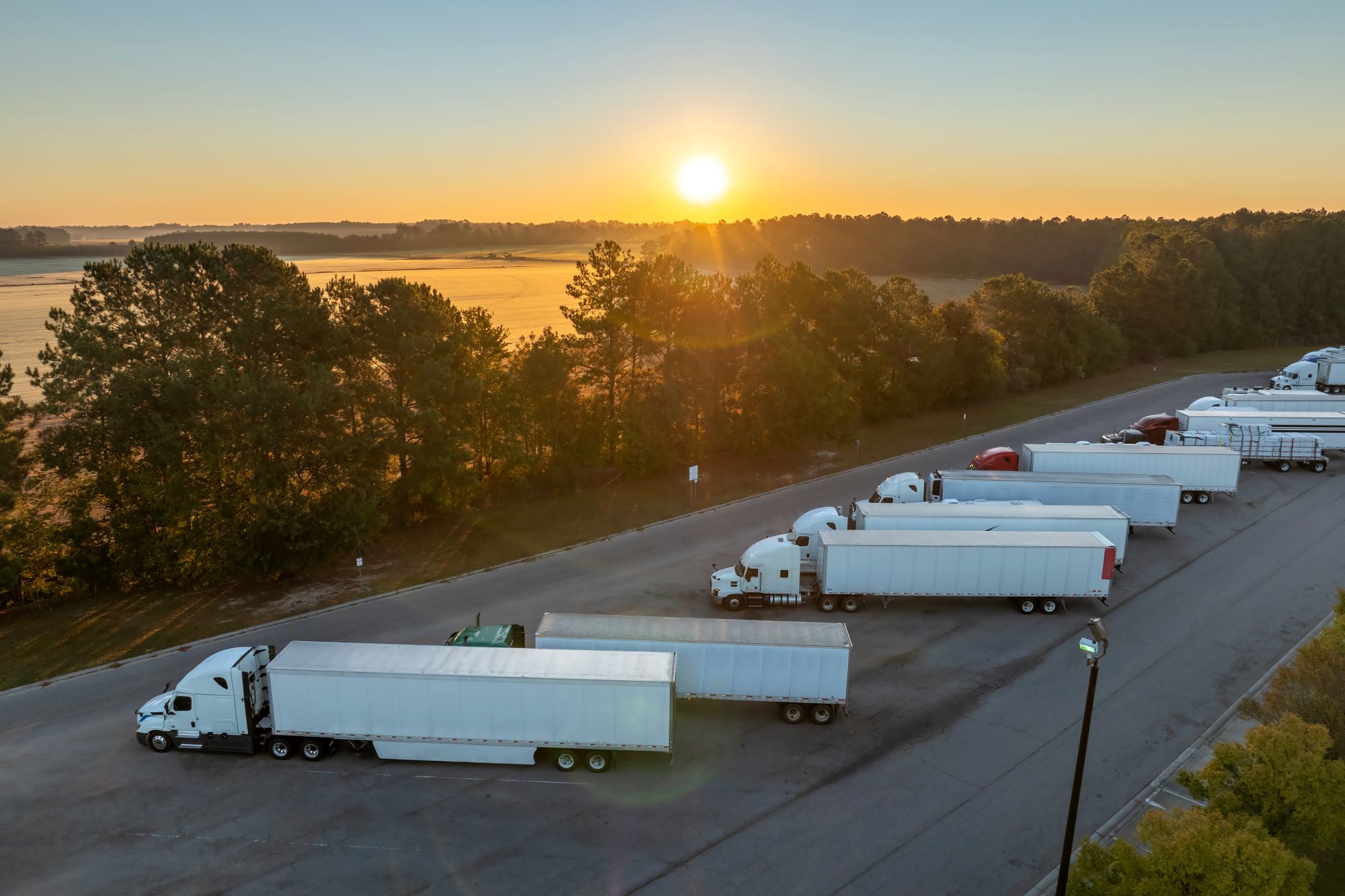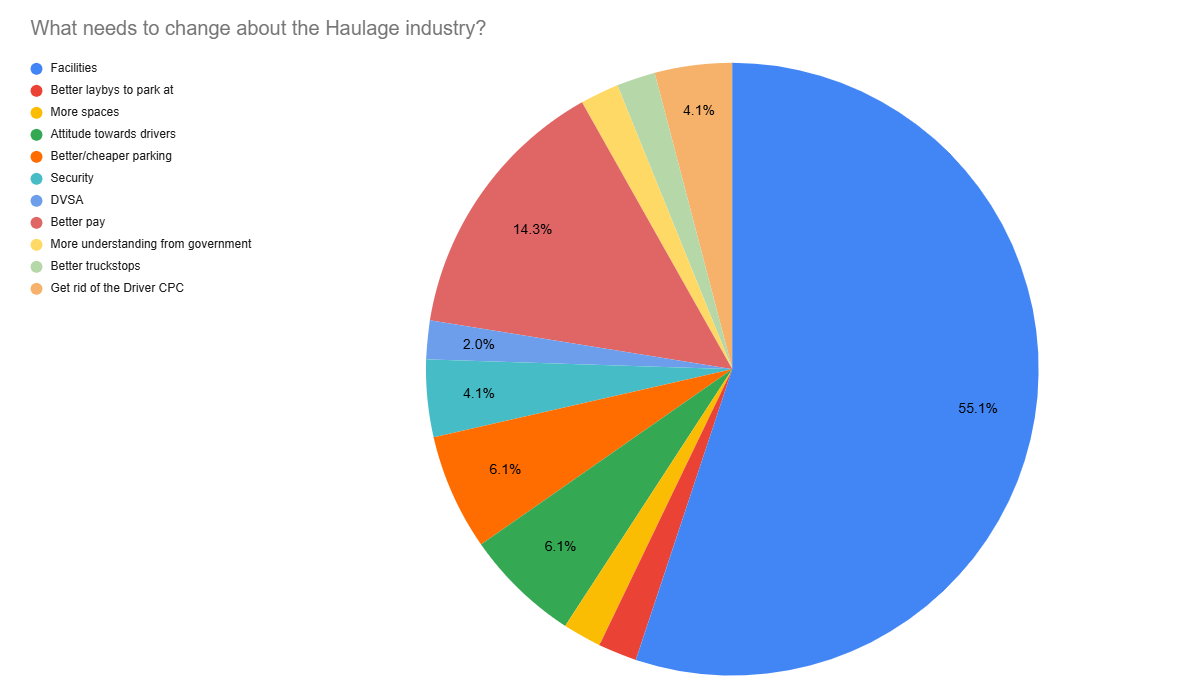
Susie Jones
Truck drivers call for industry reform
Created: 05/02/2025
•
Updated: 05/02/2025
Currently, female HGV drivers in the UK make up just 1% of all drivers - a figure that has increased by 144% over the last decade as more initiatives are introduced to promote diversity and close the driver shortage gap.
A Fleetpoint article describes the many ways the industry could attract more women into the industry:
• Cultivating a supportive and welcoming work environment.
• Upgrading infrastructure and amenities.
• Flexible and family-friendly work arrangements.
• Building clear pathways for career growth.
Despite this, drivers on social media argued that these long-standing challenges in the industry must be addressed for everyone before new initiatives are brought in to close the driver shortage.
Driver shortage - where is the industry now?
The driver shortage has been a persistent issue for the transportation industry, but after COVID-19 and Brexit, it reached critical levels. In 2024, Europe, Norway, and the UK were missing over 233,000 truck drivers - a number set to exceed 745,000 by 2028 due to an aging workforce.
The industry is still grappling with the consequences and is working towards implementing new initiatives to promote diversity, improve working conditions, and close the workforce gap.
The Government has implemented roughly [33](https://www.gov.uk/government/topical-events/hgv-driver-shortage-uk-government-response/about#:~:text=We%20extended%20dangerous%20goods%20(ADR,to%20take%20refresher%20training%20now.) actions to deal with the shortage of HGV drivers in the UK. Including, but not limited to:
• Increasing efficiency in existing supply chains.
• Providing support and training for new HGV drivers.
• Expanding HGV driver testing capacity.
• Improving licencing processes.
• Improving conditions.
• Ensuring the stability of the fuel supply chain.

What needs to change? Drivers have their say.
49% of drivers on social media argued that changes must be implemented regardless of gender - with 27% of female HGV drivers agreeing the sector must evolve for everyone. 24% stated the job was no longer appealing, highlighting the need for change in the industry. So, what do drivers want to see changed?
Facilities
55% wanted to see facilities improved for everyone:
"There needs to be better facilities and better treatment full stop. The whole industry is a shambles, and we are mistreated."
"The amenities are awful for all drivers, men and women."
In November 2024, a Transport Focus survey found that two-thirds of drivers were dissatisfied with truckstop facilities - with dirty amenities, poor food options, and a lack of social space causing significant issues.
The Government and the haulage industry have taken significant measures by investing £14 million to drive innovation and improve working conditions.
In October 2024, 23 successful applicants were awarded up to £4.5 million to enhance their truckstops. The upgrades will include new showers, restaurants, and enhanced security features to give drivers greater peace of mind. In addition, the scheme will create around 430 parking spaces for heavy goods vehicles.
Pay
Better pay came second on the list, with 14% of drivers arguing that increased wages would encourage more into the industry:
"Make it attractive to everyone, increase wages."
Increasing wages will come at a significant cost for industry leaders. If the average truck driver's salary increased in line with the National Living Wage, fleet operators could face an additional £1.5 billion a year.
Despite this, investment will improve retention rates, reduce recruitment expenses, and lower training costs. Offering higher salaries would not only make the profession more attractive to new entrants but would also recognise the critical role drivers play in maintaining the supply chain.
Attitude towards drivers
Over the years, public opinions toward truck drivers have evolved significantly. The life of a trucker has often been romanticised in films and popular media - leading many to believe they have it easy. However, it also presented them as hardworking heroes, an image that has deteriorated over time.
Towards the end of the 20th century, perceptions shifted as working conditions got tough and truck drivers were given unfair stereotypes - often due to media misrepresentation and sometimes to a few inexperienced drivers. These negative stereotypes were alleviated during the COVID-19 pandemic when public appreciation for truck drivers grew.
Today, there is respect for truckers - however, the industry remains plagued with negative stereotypes and attitudes. Something of which 6% of drivers wanted to see change:
"Thinking back to Covid, we were deemed heroes, but afterward, it returned to normal. It's no wonder current drivers, men and women, want to leave the industry. They are sick of the rubbish treatment they face daily."
"It would be nice not to be treated like you're scum."
In recent years, the rise of social media has started to challenge and change negative perceptions. Many drivers are taking to platforms like TikTok and Instagram to share insights into their role, dispel misconceptions, and earn respect from those outside the industry.
Feedback shows the urgent need for the haulage industry to implement changes to attract and retain existing and new drivers. The underrepresentation of women remains a significant challenge, and investing in facilities to cater to their needs is crucial. However, this investment must be inclusive and benefit the entire workforce.

What countries have a truck driver shortage?
Countries in Europe have been hit the hardest, with many trucking companies unable to expand their business because they can't find skilled workers.
Europe has an ageing truck driver population, with an average age of 47. One-third of truckers are over 55 and expected to retire in the next ten years. Additionally, less than 5% of truck drivers in Europe are below the age of 25 - highlighting the gap that will be left once an ageing workforce has retired.
Is there a truck driver appreciation day?
HGV Drivers Day takes place on the 22nd of January and was Established by NN1 Personnel. The day aims to celebrate truck drivers and all they do for the economy and society.
What is the trucking industry outlook for 2025?
From our blog, The Road Ahead for 2025, we expect the following to be prominent in the trucking industry this year:
• Embracing the advantages of AI.
• Tackling the gender gap and driver shortage.
• Promoting a greener industry.
• Increasing long-distance freight.


